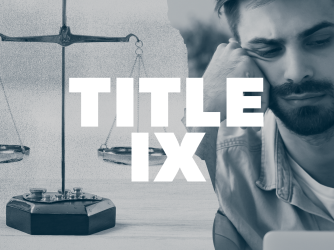Table of Contents
University of Hartford fumbles on free speech, doubles down on censorship by blocking comments on its sports-related social media post

After ignoring FIRE’s letter about campus free expression, University of Hartford has further proved it has no plans to live up to its free speech promises. (Shutterstock.com)
After ignoring FIRE’s letter expressing concern about the state of free expression on campus, the University of Hartford has further proved it has no plans to live up to its free speech promises, disabling comments on a recent Instagram post about its sports programs.
Last month, FIRE wrote Hartford after it warned student-athletes and their coaches that students could face discipline for anything “disruptive, distracting, or dangerous” during the university’s graduation ceremony. This announcement came a year after student-athletes booed Hartford President Gregory Woodward off the stage at the 2021 commencement when he announced the university would leave Division I athletics for Division III and discontinue awarding athletic scholarships by the start of the 2023 school year.
FIRE’s letter made clear that Hartford’s threat to anticipated criticism “imperils the free speech rights the university promises” and that student-athletes “do not broadly relinquish their rights off the field.”
You’d think this trend of blocking and silencing of critics on social media would be perpetrated by middle schoolers, not adult administrators at universities.
FIRE asked Hartford to respond to our letter by June 8, but the school has still not replied. As we wait to hear back about Hartford’s warning to student-athletes, however, it has continued to endanger the expressive rights that it guarantees students. Most recently, Hartford has blocked all commenting on an Instagram post announcing that it joined the Division III Commonwealth Coast Conference. This, despite the comments section remaining open on Hartford’s other Instagram posts.
Although Hartford is a private institution not bound by the First Amendment, the university makes clear, binding promises in its student handbook that students “are free, publicly or privately, to hold discussions, pass resolutions, distribute leaflets, circulate petitions, and take other orderly action that does not disrupt the essential operation of the institution.” As such, Hartford must respect students’ expressive rights.
Yet when faced with a free speech controversy and pressure from FIRE, Hartford chose to limit even more speech. In turning off comments on the Instagram post announcing its official move to DIII athletics — an issue for which it previously faced strong criticism and reasonably expects to be criticized again — Hartford took steps to limit the possibility that others might see criticism of its decisions.
Unfortunately, Hartford is not alone in shutting down avenues of speech to avoid criticism after FIRE flagged speech-restrictive behavior. Earlier this week, we saw the chancellor of the San Diego Community College District delete his account, @ChancellorSDCCD, after FIRE criticized his blocking a faculty critic. And last year, Emerson College, whose censorial practices have received much public criticism from FIRE, hid critics’ replies to its tweets after FIRE criticized punishment of a Turning Point USA student group for passing out “China Kind Sus” stickers (“sus” meaning suspicious, in reference here to China’s government). Many of the tweets that Emerson hid consisted of simply a picture of Winnie the Pooh, an image that has come to represent resistance to China’s state censorship after authorities cracked down on comparisons of President Xi Jinping to the cartoon bear.
Hartford must respect students’ expressive rights.
You’d think this trend of blocking and silencing of critics on social media would be perpetrated by middle schoolers, not adult administrators at universities who can’t face the reality that their decisions can and should be open to criticism.
We hope Hartford and all other universities that have censored online critics choose to make speech-protective decisions in the future, but we fear a variation on the age-old saying may be true: Once a censor, always a censor.
We hope Hartford proves us wrong.
Recent Articles
FIRE’s award-winning Newsdesk covers the free speech news you need to stay informed.


FIRE statement on campus violence and arrests

BREAKING: New Title IX regulations undermine campus free speech and due process rights
